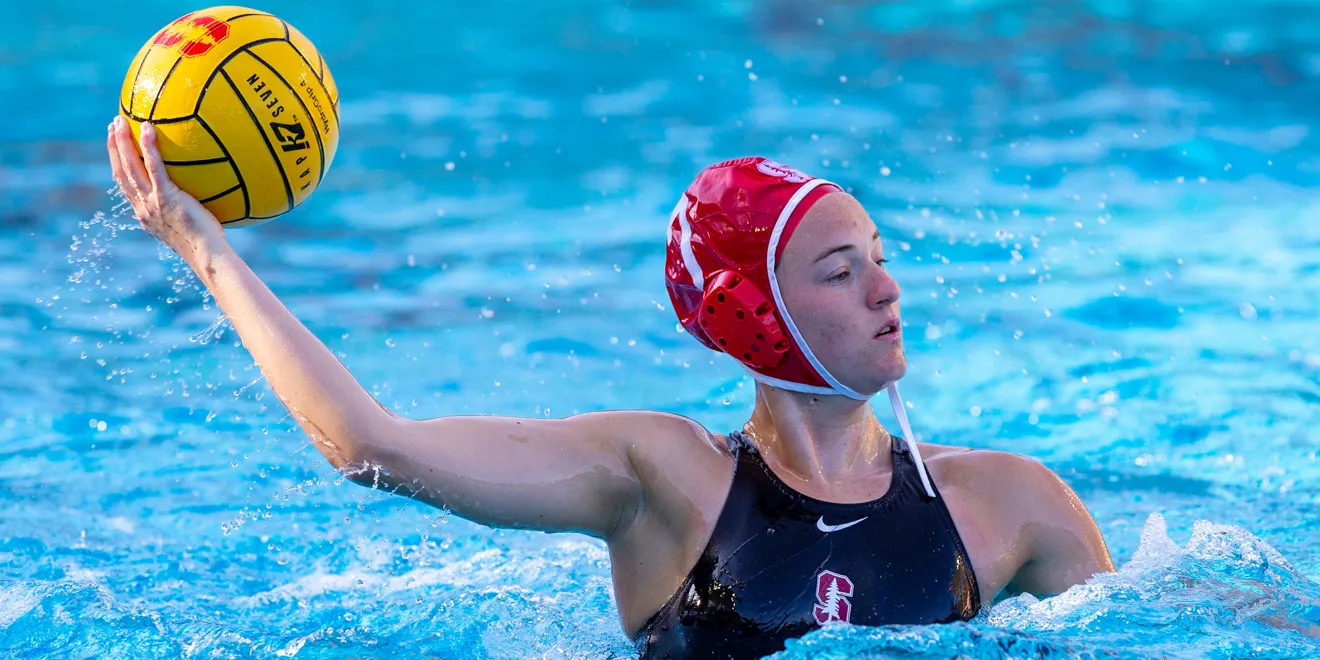The women’s water polo team, which finished 20-4 overall last season, kicked off its summer training after spring quarter finals. The team practices from 6 a.m. to 8 a.m., Monday through Friday, through mid-July.
This year, 13 athletes are participating in the voluntary summer training, according to Lauren Bywater ’20, a driver on the water polo team. In a typical water polo practice, players swim laps for 30 to 45 minutes, perform situational drills and play games against one another. Over the weekend, the team further practices their skills at club games against other schools. The Daily spoke with two members of the team to learn more about their summer training — and how they balance other pre-professional commitments.
Lauren Bywater ’20
Bywater will spend this summer practicing water polo and doing an internship at the Stanford Prevention and Research Center from 9 a.m. to 5 p.m., Monday through Friday. Bywater has been able to balance all her commitments due in part to the fact that the team has input on practice times and their coach’s recognition of the importance of internships. According to Bywater, this is why the team chose early morning practices.
Bywater decided to participate in the summer training because of how it worked with her schedule as well as the benefits that came with practicing as a team.
“Our summer team is more consolidated which allows players more playing time and allows them to focus on specific skill areas,” said Bywater. “Honestly, it also helps grow our love for the sport because it is so fun.”
Bywater believes that although the training is tiresome, it is not as intense as typical training during the school year. This is because during the summer, players don’t have as structured of a schedule and they can focus more on their sports.
According to Bywater, as their training will end in the middle of July, there is some potential to get rusty because of the gap before fall training begins.
Kayla Constandse ’20
Constandse, a driver on the team, will train along with her work at Stanford’s medical school, where she is writing an independent review article about the immune system and strokes. Like Bywater, she works Monday through Friday from 9:30 a.m. to 5:00 pm..
According to Constandse, choosing not to train over the summer can make the return to training much harder in the fall. Constandse also said that by training over the summer, individual improvements can be made because of the more condensed team.
Although their training is intensive, Constandse believes the positives outweigh the negatives. By training over the summer, the players can begin to find their individual roles as well as begin to form into a cohesive unit that is looking for a seventh national championship.
“Our practices are always intensive because we want to be the best and win a national championship,” said Constandse. “We have something we are striving for, and when you have a goal in mind, it makes everything that much easier.”
Contact Kelsey Lu at kelseylu612 ‘at’ gmail.com
